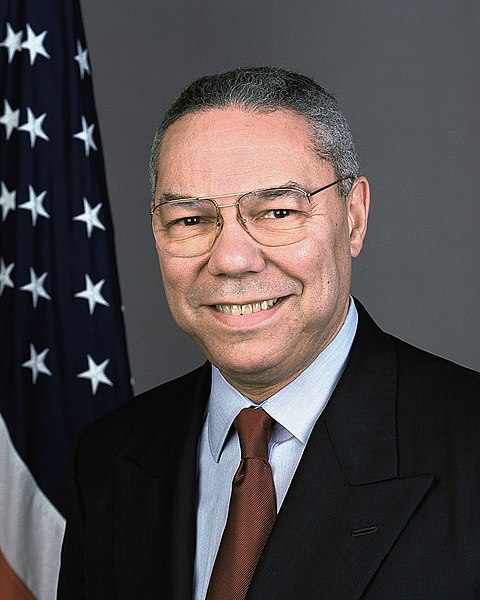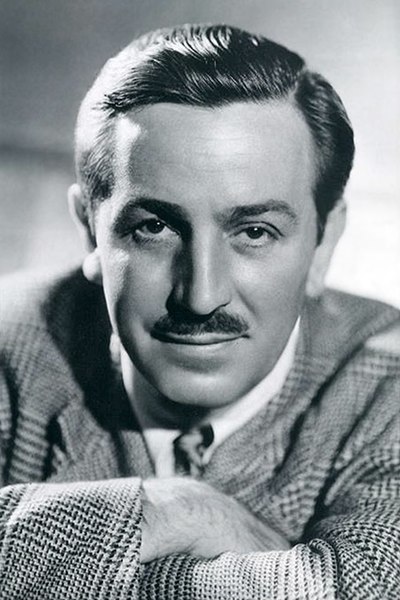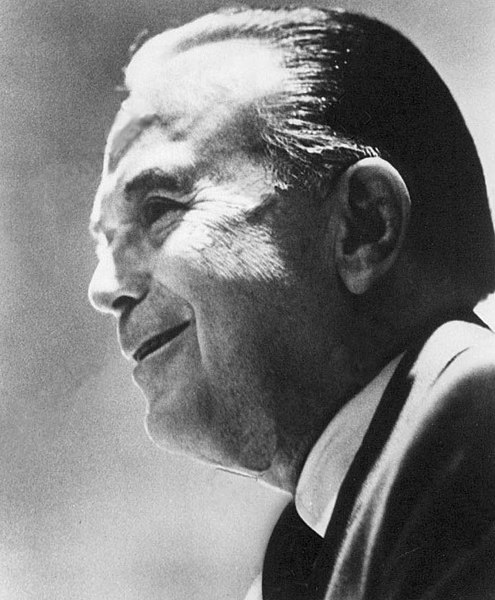Leading with Integrity: Unveiling Colin Powell’s Timeless Leadership Legacy

Exploring the Extraordinary Leadership Journey of Colin Powell
Leadership is a timeless concept that has been studied, analyzed, and celebrated throughout history. It is a subject that captures the imagination and fascination of individuals aspiring to make a positive impact in their personal and professional lives. Throughout the annals of history, there have been exceptional leaders whose stories continue to inspire and provide valuable lessons in navigating the complex terrain of leadership. One such leader, whose life and career have left an indelible mark on the world stage, is Colin Powell.
Colin Powell, a distinguished statesman and military general, is a beacon of leadership excellence. His remarkable journey traverses both the military and political arenas, showcasing his exceptional abilities to lead, inspire, and effect meaningful change. With over four decades of experience in leadership development, I have had the privilege of closely examining the leadership philosophies and practices of numerous influential figures. However, few leaders possess the wisdom, integrity, and resilience that Colin Powell exemplified throughout his illustrious career.
Born in Harlem, New York City, Powell’s life was shaped by the values of hard work, determination, and the pursuit of excellence. These early influences, combined with his education and military training, laid the foundation for his leadership style that would later earn him widespread admiration. Powell’s rise to prominence came not only from his exemplary military service but also from his political contributions as the Secretary of State under President George W. Bush.
The purpose of this article is to delve into the leadership lessons and inspiring stories that emerged from Colin Powell’s extraordinary journey. By examining the experiences and decisions that shaped his leadership approach, we can glean valuable insights applicable to various leadership contexts. Whether you are a business executive, a community leader, or an aspiring young professional, there is much to learn from Powell’s transformative leadership style.
In the following sections, we will explore Powell’s formative years, his remarkable leadership in the military, his transition to the political arena, and the enduring legacy he leaves behind. We will examine the fundamental principles that guided his actions, such as building strong teams, strategic thinking, and ethical decision-making. Moreover, we will delve into inspiring stories that showcase Powell’s leadership prowess in the face of adversity, shedding light on his ability to motivate and empower those around him.
As we journey through the pages of Powell’s life, it is important to recognize that leadership is not confined to a particular domain or title. Instead, it is a mindset, a set of values, and a commitment to making a difference. Colin Powell embodies this ideal, demonstrating that true leadership is not solely about power and authority but about influencing others through character, integrity, and a genuine desire to serve.
By immersing ourselves in the lessons and stories of Colin Powell, we open ourselves to a wealth of knowledge and inspiration. It is my hope that this exploration of his leadership journey will not only honor his remarkable contributions but also ignite the spark of leadership within each reader. As we embark on this transformative journey, let us be inspired by the legacy of Colin Powell, a leader whose impact will continue to resonate for generations to come.
Early Influences and Foundation
Childhood experiences and their impact on Powell’s leadership development
Colin Powell’s journey to becoming a renowned leader began with humble beginnings in the vibrant neighborhood of Harlem. Growing up in a working-class family, he witnessed the challenges and opportunities that shaped his worldview. It was within the tapestry of this diverse community that Powell learned the value of resilience, determination, and the importance of embracing diversity.
Raised by Jamaican immigrant parents, Powell was instilled with a strong work ethic and a deep appreciation for education. His parents, Luther and Maud Powell, emphasized the importance of seizing every opportunity to excel academically. They encouraged young Colin to pursue his dreams and overcome any obstacles that stood in his path. These formative experiences taught him the value of hard work and perseverance, which would later become guiding principles in his leadership journey.
Education and military training: Shaping his leadership style
Powell’s thirst for knowledge and personal growth led him to the City College of New York, where he pursued a degree in geology. It was during his time at college that he developed his intellectual curiosity and honed his critical thinking skills. The academic environment not only expanded his knowledge but also fostered a deep sense of discipline and dedication to excellence.
However, Powell’s academic pursuits were soon interrupted by the call of duty. In 1958, he joined the Reserve Officers’ Training Corps (ROTC) program, embarking on a military career that would define his leadership path. The military provided Powell with a structured environment where he could develop essential leadership skills, such as discipline, adaptability, and the ability to make tough decisions under pressure.
As he progressed through his military training, Powell’s leadership potential became evident to his superiors. He was consistently recognized for his exceptional abilities, earning the respect and admiration of his peers and mentors. The blend of academic knowledge and military training infused his leadership style with a unique combination of strategic thinking, practicality, and a deep understanding of human nature.
The influence of mentors and role models in shaping Powell’s leadership philosophy
Powell’s journey towards becoming a leader of exceptional caliber was not solely fueled by his own ambition and determination. Along the way, he encountered influential mentors and role models who played a pivotal role in shaping his leadership philosophy.
One such influential figure was General Creighton Abrams, who served as Powell’s mentor during his time in the military. Abrams recognized Powell’s potential early on and provided guidance, support, and opportunities for growth. Under Abrams’ tutelage, Powell learned the importance of humility, listening to others, and seeking diverse perspectives before making critical decisions.
Additionally, Powell drew inspiration from the principles and leadership approach of his role models, including General George C. Marshall and President Dwight D. Eisenhower. These esteemed leaders exemplified the values of integrity, honor, and selfless service, which Powell would later internalize and apply throughout his own leadership journey.
The combined influence of his upbringing, education, military training, and mentorship shaped the foundation of Powell’s leadership style. It laid the groundwork for the remarkable leadership achievements he would go on to attain in both the military and political arenas. In the subsequent sections, we will explore how Powell’s leadership acumen manifested in various contexts, uncovering valuable lessons and inspiring stories that can guide and inspire leaders from all walks of life.
Leadership in the Military
Rising through the ranks: Powell’s journey to becoming a four-star general
Colin Powell’s military career can be described as a testament to his exceptional leadership abilities and dedication to service. From his early days as a young officer to his rise as a four-star general, Powell’s journey showcased his relentless pursuit of excellence and his unwavering commitment to his troops.
Powell’s leadership potential was evident from the start. He quickly distinguished himself through his competence, strong work ethic, and ability to inspire those around him. As he ascended through the ranks, he took on increasingly challenging assignments, earning the trust and respect of his superiors and subordinates alike.
One of the defining moments in Powell’s military career came during his service in the Vietnam War. As a young Army major, he faced the daunting task of leading a platoon through the harsh realities of combat. It was during this time that Powell’s leadership skills were put to the ultimate test. Through his calm demeanor, strategic thinking, and unwavering commitment to the well-being of his troops, Powell emerged as a respected leader who led his soldiers with courage and compassion.
Powell’s rise through the military hierarchy was marked by a series of leadership roles that further solidified his reputation as an exceptional leader. From his time as a battalion commander to serving as a brigade commander in the 101st Airborne Division, Powell consistently demonstrated the ability to motivate and inspire his troops to achieve extraordinary results.
Key leadership roles held by Powell during his military career
Powell’s leadership journey in the military encompassed a diverse range of roles and responsibilities. Notably, he served as the Assistant Chief of Staff for the Americal Division in Vietnam, where he implemented innovative strategies to improve coordination and communication within the division. His ability to bring together individuals from different backgrounds and foster a sense of unity greatly contributed to the division’s success.
Another pivotal leadership role held by Powell was his appointment as the National Security Advisor under President Ronald Reagan. In this position, he played a crucial role in shaping national security policy and advising the President on matters of utmost importance. Powell’s ability to navigate complex geopolitical landscapes and provide astute counsel further solidified his reputation as a trusted leader with a deep understanding of global affairs.
However, it was Powell’s appointment as Chairman of the Joint Chiefs of Staff under President George H.W. Bush that propelled him to even greater heights of leadership. As the highest-ranking military officer in the United States, Powell oversaw the successful execution of Operation Desert Storm, a military campaign aimed at liberating Kuwait from Iraqi forces. His strategic acumen, meticulous planning, and effective communication skills played a pivotal role in the campaign’s success, solidifying his legacy as a military leader of unparalleled distinction.
Lessons learned from Powell’s leadership approach in the military
Powell’s leadership approach in the military was characterized by a combination of strategic thinking, empathy, and a deep commitment to the welfare of his troops. His leadership style offers valuable lessons for leaders in any field:
1. Building strong teams and fostering a sense of camaraderie:
Powell understood the importance of building cohesive teams based on trust, mutual respect, and shared purpose. He believed in empowering his subordinates and creating an environment where every individual felt valued and heard. By fostering a sense of camaraderie, he was able to harness the collective strengths of his teams and achieve remarkable outcomes.
2. Strategic thinking and decision-making under pressure:
Powell’s military career was replete with high-stakes situations that demanded sound judgment and swift decision-making. He excelled in these moments by relying on his strategic thinking skills and the ability to analyze complex information under intense pressure. Powell’s approach serves as a reminder of the importance of maintaining composure, considering all options, and making informed decisions even in the most challenging circumstances.
3. Accountability and responsibility in leadership:
Powell firmly believed that leaders must take responsibility for their actions and decisions. He held himself accountable for the outcomes of his leadership and expected the same from those under his command. This emphasis on personal accountability and integrity served as a guiding principle throughout his military career, inspiring others to uphold the highest standards of professionalism and ethical conduct.
Powell’s leadership in the military stands as a testament to the transformative impact a leader can have on individuals and organizations. His ability to inspire, motivate, and navigate complex challenges remains a source of inspiration for leaders across various domains. As we delve deeper into Powell’s leadership journey, we will uncover further insights and stories that shed light on his remarkable leadership acumen and provide invaluable lessons for aspiring leaders in any context.
Leadership in the Political Arena
Powell’s transition from military to politics
After a distinguished military career, Colin Powell embarked on a new chapter in his life by transitioning from the military to the political arena. His decision to enter politics was driven by a deep sense of duty and a desire to continue serving his country in a different capacity. Powell’s transition exemplified his adaptability and willingness to embrace new challenges, showcasing his leadership qualities in a different context.
Powell’s entrance into politics was met with great anticipation and high expectations. He brought with him a wealth of experience, credibility, and a reputation for principled leadership. As he embarked on this new journey, he remained committed to the values and principles that had guided him throughout his military career.
Key roles and accomplishments during his tenure as Secretary of State
Powell’s most notable political role was his appointment as the 65th Secretary of State under President George W. Bush. In this position, he became the first African American to hold the prestigious office. Powell’s tenure as Secretary of State was marked by a series of significant accomplishments and challenges, showcasing his diplomatic skills and commitment to international cooperation.
One of Powell’s most consequential challenges was the handling of the post-9/11 geopolitical landscape. He played a central role in articulating the Bush administration’s foreign policy objectives, particularly in relation to the global war on terrorism. Powell’s ability to communicate with clarity, build coalitions, and engage in effective diplomacy earned him international respect and admiration.
Powell’s tenure as Secretary of State also witnessed significant diplomatic achievements. Notably, he played a pivotal role in rallying international support for the invasion of Afghanistan, garnering crucial backing from NATO allies and key global partners. Additionally, Powell made a compelling case for the disarmament of Iraq before the United Nations Security Council, although subsequent events raised questions about the accuracy of the intelligence presented at that time.
Handling difficult diplomatic challenges: Lessons in diplomacy and negotiation
Powell’s diplomatic approach was characterized by pragmatism, a commitment to multilateralism, and a belief in the power of dialogue. He understood the importance of forging alliances and fostering collaboration to address complex global issues. Powell’s ability to navigate delicate diplomatic challenges offers valuable lessons for leaders in the realm of negotiation and international relations:
1. Building trust and credibility:
Powell recognized that trust and credibility are the foundation of successful diplomacy. He prioritized open and honest communication, establishing rapport and understanding with international counterparts. By building trust, he was able to create an environment conducive to constructive dialogue and negotiation.
2. Seeking common ground and compromise:
Powell’s diplomatic approach emphasized the importance of finding common ground and seeking mutually beneficial solutions. He understood that effective negotiation required a willingness to compromise and a focus on long-term objectives. Powell’s ability to bridge differences and find common interests demonstrated his skill in navigating complex diplomatic challenges.
3. Maintaining moral clarity and ethical conduct:
Throughout his political career, Powell upheld the importance of moral clarity and ethical conduct. He emphasized the need for leaders to uphold integrity, even in the face of difficult decisions. Powell’s commitment to ethical leadership in the political arena serves as a reminder of the enduring value of integrity and principled action.
Powell’s leadership in the political arena exemplified his ability to navigate complex diplomatic challenges with integrity and a commitment to the common good. His diplomatic achievements and his dedication to ethical leadership continue to inspire leaders around the world.
Powell’s leadership style in managing diverse teams and fostering collaboration
Powell’s leadership style in politics echoed the principles he had applied throughout his military career. He understood the importance of managing diverse teams and fostering collaboration to achieve common goals. Powell recognized that effective leadership in the political arena required building bridges and finding common ground among individuals with differing perspectives:
1. Inclusivity and diversity:
Powell believed in harnessing the power of diversity and inclusivity to drive progress and innovation. He actively sought input from individuals with diverse backgrounds and experiences, recognizing the strength that comes from different perspectives. Powell’s leadership approach emphasized the importance of creating an inclusive environment where every voice is valued.
2. Effective communication and persuasion:
As a skilled communicator, Powell excelled in articulating his vision and persuading others to support his objectives. He understood the power of compelling storytelling and the ability to convey complex ideas in a clear and relatable manner. Powell’s communication skills played a crucial role in his ability to manage diverse teams and foster collaboration.
3. Collaboration and consensus-building:
Powell’s leadership approach emphasized the importance of collaboration and consensus-building. He recognized that achieving meaningful outcomes often required bringing together stakeholders with differing opinions and finding common ground. Powell’s ability to facilitate dialogue and navigate complex negotiations contributed to his effectiveness as a leader in the political arena.
Powell’s leadership in the political arena showcased his adaptability, diplomatic skills, and commitment to ethical conduct. He provided valuable lessons in managing diverse teams, navigating challenging diplomatic landscapes, and upholding integrity in leadership. As we explore further into Powell’s leadership journey, we will uncover inspiring stories and delve deeper into the enduring legacy he leaves in the realm of political leadership.
Character and Integrity in Leadership
The importance of character and integrity in Powell’s leadership philosophy
Character and integrity were at the core of Colin Powell’s leadership philosophy. He believed that true leadership is not only measured by accomplishments and capabilities but also by the moral compass and ethical conduct of the leader. Powell’s unwavering commitment to honesty, accountability, and ethical decision-making set him apart as a leader of exceptional integrity.
Powell understood that leaders serve as role models and that their actions and behaviors reverberate throughout an organization or society. He believed that leaders must lead by example and uphold the highest standards of ethical conduct. Powell’s emphasis on character and integrity served as a guiding light, inspiring trust and confidence in those he led.
Ethical decision-making and principled leadership: Examples from Powell’s career
Throughout his career, Powell encountered numerous instances where he had to make difficult decisions with ethical implications. His commitment to principled leadership shone through in these moments, exemplifying his steadfast dedication to doing what was right, even in the face of adversity. Some notable examples include:
1. The Gulf War and the Powell Doctrine:
During the Gulf War, Powell advocated for a clear set of principles that became known as the “Powell Doctrine.” This doctrine emphasized the importance of using military force as a last resort, with clearly defined objectives, overwhelming force, and a clear exit strategy. Powell’s adherence to this doctrine demonstrated his commitment to ethical decision-making and avoiding unnecessary loss of life.
2. Resignation over intelligence concerns:
Following Powell’s tenure as Secretary of State, questions arose regarding the accuracy of intelligence presented to the United Nations regarding Iraq’s weapons of mass destruction. Powell, known for his credibility and commitment to accurate information, expressed deep regret over the flawed intelligence and its potential impact on the decision to invade Iraq. His willingness to accept responsibility and his candid acknowledgment of the intelligence shortcomings demonstrated his unwavering integrity.
3. Commitment to diversity and inclusion:
Powell consistently championed diversity and inclusion throughout his career, recognizing the value of diverse perspectives and experiences. He actively promoted diversity within the military and advocated for equality and fairness in the workplace. Powell’s commitment to embracing diversity showcased his principled leadership and his understanding of the power of inclusivity.
Balancing competing interests and maintaining personal values
Powell faced numerous instances where he had to navigate competing interests and pressures while staying true to his personal values. In these situations, he displayed an exceptional ability to strike a balance, ensuring that his decisions aligned with his principles and values. Some key lessons can be drawn from Powell’s approach:
1. Clear moral compass:
Powell’s unwavering moral compass guided his decision-making. He believed in adhering to a set of core values that served as a guiding force in evaluating competing interests and making difficult choices.
2. Courage to stand up for principles:
Powell demonstrated remarkable courage in standing up for his principles, even when faced with opposition or resistance. He was not afraid to voice dissenting opinions when he believed they were rooted in ethical considerations.
3. Seeking counsel and diverse perspectives:
Powell recognized the value of seeking counsel and diverse perspectives when faced with challenging decisions. He actively sought out input from trusted advisors, encouraging open and honest dialogue to ensure a well-rounded understanding of complex issues.
Powell’s commitment to character, integrity, and ethical leadership serves as a timeless reminder of the importance of leading with a strong moral compass. His unwavering dedication to doing what is right, even in the face of adversity, continues to inspire leaders to uphold the highest standards of integrity and ethics in their own leadership journeys.
Inspiring Stories and Lessons Learned
Story 1: Leading with Empathy and Compassion
One of the remarkable stories that exemplifies Colin Powell’s leadership style is his response to the My Lai Massacre during the Vietnam War. In the aftermath of this tragic event, Powell was tasked with investigating the incident and preparing a report. While the findings revealed the horrifying details of the massacre, Powell’s approach to the situation showcased his capacity for empathy and compassion.
Recognizing that the soldiers involved were part of a larger system and influenced by the circumstances they faced, Powell advocated for a fair and just investigation. He emphasized the importance of understanding the context and the factors that contributed to the atrocity. Powell’s ability to approach the situation with empathy and compassion while still holding individuals accountable demonstrated his nuanced understanding of leadership and the importance of considering the complexities of human behavior.
Lessons learned:
– Leaders should strive to understand the underlying factors and context that contribute to a situation, avoiding snap judgments.
– Empathy and compassion are essential leadership qualities that foster understanding and promote fair treatment.
– Holding individuals accountable can be balanced with efforts to address the systemic issues that may have contributed to the situation.
Story 2: Building Bridges in Diplomacy
Another inspiring story from Powell’s career involves his efforts in bridging gaps and fostering diplomacy during the Cuban Missile Crisis. As a young Army officer stationed in Germany, Powell was tasked with ensuring that U.S. troops remained calm and prepared for potential conflict during this tense period. However, instead of focusing solely on military preparedness, Powell recognized the importance of building bridges with the local German community.
Powell initiated various cultural exchange programs, organized joint military exercises, and encouraged dialogue between U.S. troops and German citizens. By fostering positive relationships and emphasizing mutual understanding, he created an atmosphere of cooperation and collaboration. These efforts not only helped to ease tensions but also laid the groundwork for long-lasting friendships and partnerships.
Lessons learned:
– Effective leadership involves recognizing the importance of building relationships and fostering understanding between different groups or nations.
– Cultural exchange and dialogue can play a vital role in diffusing tensions and fostering collaboration.
– By emphasizing shared goals and common interests, leaders can bridge gaps and cultivate an atmosphere of cooperation.
Story 3: Leading with Integrity in Challenging Times
One of the defining moments in Powell’s career was his role in the lead-up to the invasion of Iraq. As Secretary of State, he presented the case for military intervention before the United Nations Security Council, highlighting the alleged presence of weapons of mass destruction in Iraq. However, subsequent events and investigations raised doubts about the accuracy of the intelligence presented.
In the face of these revelations, Powell demonstrated remarkable integrity by openly acknowledging the flaws in the intelligence and expressing regret over the potential consequences of the decision to invade Iraq. He remained steadfast in upholding the principles of honesty and accountability, even when it meant accepting personal responsibility for the outcome.
Lessons learned:
– Leaders should prioritize honesty and transparency, even when it means admitting mistakes or accepting accountability for unfavorable outcomes.
– Integrity requires a commitment to ethical conduct and the courage to stand by one’s principles, even in challenging circumstances.
– Leaders must be willing to reevaluate and adjust their course of action based on new information and changing circumstances.
The stories of Colin Powell’s leadership journey provide invaluable lessons for leaders in various domains. These examples illustrate his ability to lead with empathy, bridge gaps through diplomacy, and uphold integrity in the face of adversity. By embracing these lessons, leaders can enhance their own leadership abilities and strive to make a positive impact in their respective spheres of influence.
Reflection on Leadership Legacy
Colin Powell’s leadership legacy extends far beyond his remarkable career in the military and politics. It is a testament to the enduring impact of his principles, values, and leadership approach. As we reflect on his legacy, we can draw valuable insights and inspiration for our own leadership journeys.
Analyzing the enduring impact of Powell’s leadership principles and practices
Powell’s leadership principles and practices continue to resonate and hold relevance in today’s dynamic and complex world. His emphasis on character, integrity, empathy, and strategic thinking serve as enduring pillars of effective leadership. The lessons learned from his experiences and the stories shared provide valuable guidance for leaders across various domains.
Furthermore, Powell’s commitment to diversity, inclusivity, and ethical conduct is a timeless reminder of the importance of these values in leadership. As organizations and societies become increasingly diverse, leaders must embrace and leverage the power of diversity to drive innovation, collaboration, and equitable progress.
Powell’s contributions to leadership development and mentoring future leaders
In addition to his remarkable leadership accomplishments, Powell has made significant contributions to leadership development and mentorship. He recognized the importance of nurturing future leaders and dedicated himself to passing on his wisdom and experiences.
Powell served as a mentor to many aspiring leaders, offering guidance, support, and inspiration. His commitment to mentorship reflects his belief in the power of investing in others and helping them unlock their full potential. Powell’s mentorship legacy continues to shape and inspire emerging leaders around the world.
In addition to his remarkable leadership accomplishments, Powell has made significant contributions to leadership development and mentorship. He recognized the importance of nurturing future leaders and dedicated himself to passing on his wisdom and experiences.
Powell served as a mentor to many aspiring leaders, offering guidance, support, and inspiration. His commitment to mentorship reflects his belief in the power of investing in others and helping them unlock their full potential. Powell’s mentorship legacy continues to shape and inspire emerging leaders around the world.
The relevance of Powell’s leadership lessons in today’s dynamic and complex world
Today’s leaders face unprecedented challenges in an ever-changing global landscape. The lessons gleaned from Powell’s leadership journey remain relevant and offer guidance for navigating these complexities.
Powell’s emphasis on building strong teams, fostering collaboration, and seeking diverse perspectives is particularly crucial in an interconnected and diverse world. By embracing these principles, leaders can harness the power of collective intelligence and build inclusive cultures that unlock the full potential of their teams.
Furthermore, Powell’s unwavering commitment to ethical decision-making and integrity serves as a compass in a world where trust in leadership is paramount. Leaders who uphold the highest ethical standards and prioritize transparency and accountability inspire confidence and foster a culture of trust and respect.
Today’s leaders face unprecedented challenges in an ever-changing global landscape. The lessons gleaned from Powell’s leadership journey remain relevant and offer guidance for navigating these complexities.
As we reflect on Colin Powell’s leadership legacy, we are reminded of the transformative impact a leader can have on individuals, organizations, and society at large. His principles, values, and leadership approach continue to inspire and guide leaders from all walks of life. By embracing the lessons learned from Powell’s leadership journey, we can cultivate our own leadership potential, create positive change, and leave a lasting legacy of our own.
Embracing Powell’s Leadership Legacy: Inspiring Change and Leaving a Lasting Impact
Colin Powell’s leadership journey is a testament to the transformative power of exceptional leadership. Throughout his life, he exemplified the qualities and principles that make a leader great—character, integrity, empathy, and a commitment to service. From his early influences and military career to his influential role in politics, Powell’s leadership legacy leaves an indelible mark on the world.
As we reflect on Powell’s leadership lessons and inspiring stories, we are reminded of the timeless truths that underpin effective leadership. His emphasis on building strong teams, fostering collaboration, and embracing diversity resonates in today’s interconnected and diverse world. By valuing and leveraging the unique perspectives and talents of individuals, leaders can unleash collective creativity and achieve remarkable results.
Powell’s unwavering commitment to ethical decision-making and integrity serves as a beacon in a world that yearns for trustworthy leadership. His refusal to compromise on principles, even in the face of adversity, inspires us to uphold the highest standards of honesty, transparency, and accountability. Leaders who embrace these values create cultures of trust, respect, and credibility that transcend boundaries and foster enduring success.
Moreover, Powell’s dedication to mentorship and developing future leaders underscores the importance of investing in others. By sharing our wisdom, experiences, and guidance, we empower the next generation of leaders to navigate the complexities of an ever-evolving world with resilience, empathy, and strategic acumen. Powell’s mentoring legacy continues to shape and inspire leaders around the globe.
As we conclude this comprehensive exploration of Colin Powell’s leadership lessons and stories, let us internalize and apply these insights to our own leadership journeys. Let us strive to lead with character, integrity, empathy, and strategic thinking. Let us build strong teams, foster collaboration, and embrace diversity. Let us prioritize ethical decision-making and inspire trust through transparency and accountability.
By embodying the principles and values exemplified by Colin Powell, we have the potential to create meaningful and lasting impact in our personal and professional spheres. Let us be the leaders who uplift, inspire, and empower others to reach their full potential. Through our own leadership journeys, we carry forward the remarkable legacy of Colin Powell, leaving a positive and enduring imprint on the world.






